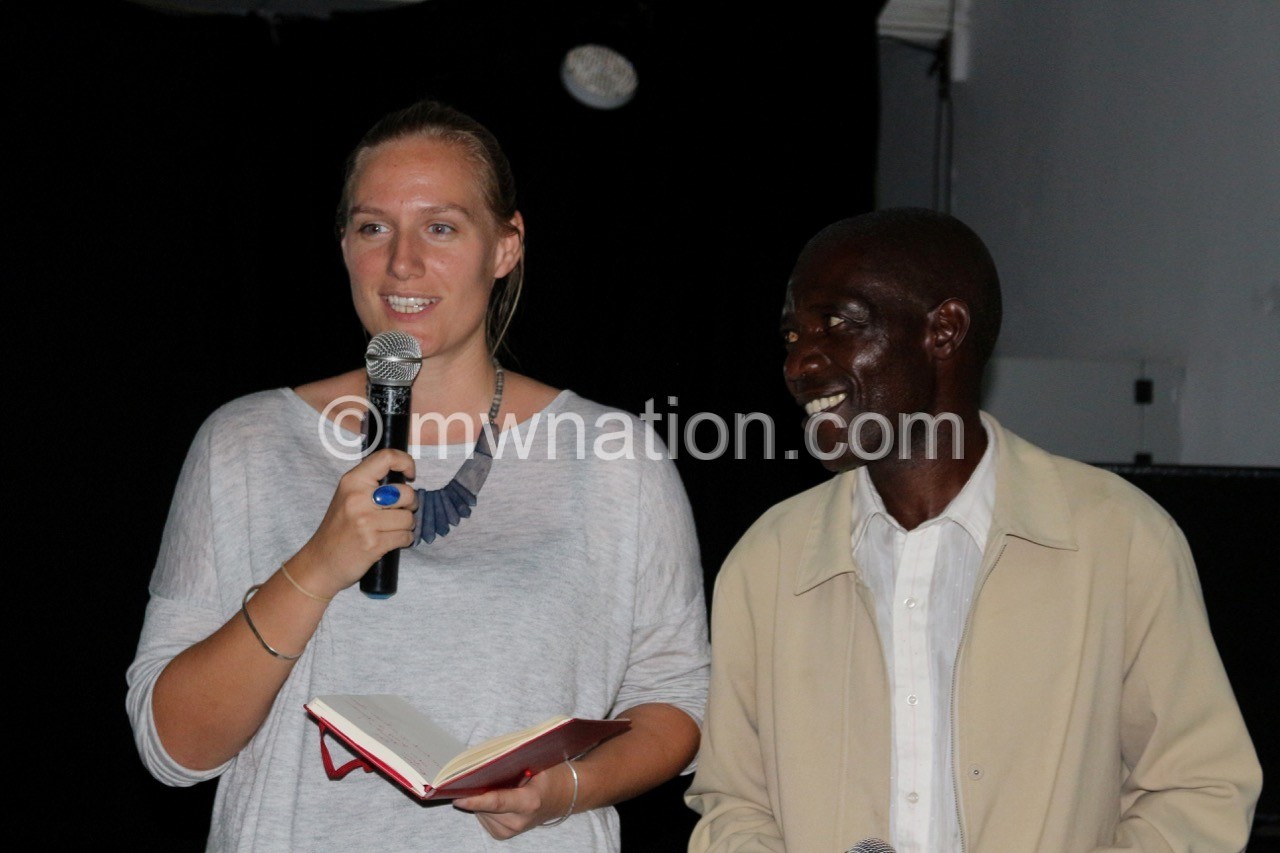Life swap experience
What happens when you take a Ntcheu farmer in Malawi to Essex, United Kingdom (UK)? What happens when you take an overworked British businessman to be a farmer in Malawi?
This is what happens in the British Broadcasting Corporation (BBC) life swap adventure documentary, aired in the UK in May and Malawi on December 7 this year.

The programme features two fathers—one from Malawi and the other from England, who swapped lives for a week.
John, a fire officer from Essex, has spent his whole life working only to realise that his life might be slipping away from him. He never has time to see his children or to spend time with his family.
On the other hand, George, a farmer from Ntcheu, has worked the land all his life to provide for his family. He believes life in the UK must be simpler, because everything is more advanced.
When George reaches UK, he is struck by the magnificent buildings and the advanced life style. The civilisation in the west is in stark contrast with that of home in Ntcheu.
Right from the airport to John’s house in Essex, George is in bewilderment. “To start with, I don’t know where I’m going. To make matters worse, I don’t know where I’m right now,” he says, summing up his predicament.
In the thick of this civilisation, George feels like a fish out of the sea.
After consulting his note on the directions to John’s home, he is able to reach his destination. John’s wife welcomes him. He enters the house and is shown his bedroom. The next day, John’s wife takes him around the compound, showing him John’s poultry house and the surroundings.
Meanwhile, almost 4 000 miles away, John is in Blantyre city but heading to Ntcheu. He reaches Liwonde Township in Machinga, some 30 kilometres from his destination. He then boards a minibus to Chitsulo Village in Ntcheu.
There, he is welcomed by George’s son who introduces him to the other members of the family. The following day George’s son takes him around the compound.
John is struck by the sheer modesty of life and everything in Africa. The place to be his home for the next seven days looks humbling, as if belonging to a forgotten civilisation of old—grass thatched houses, no electricity, no running water, no radio, no television set and no nothing!
The following morning John goes to the farm where George and his family till the land. He wants to relive the hard-knock life of John, a typical peasant in rural Malawi and a symbol of most Malawians living such life every single day.
There, George’s son teaches him how to dig the soil—first how to handle a hoe and focus on the spot to dig. He discovers that farming using a hoe is a tedious exercise that can wear out people. He wonders how on earth these people produce enough for the family by using a hoe.
At night John sleeps on the floor and not on a comfortable bed. At the same time, his opposite in Essex is lying comfortably on a bed, enjoying the borrowed glory while it lasts. After a week, he will be back to Africa where reality of life awaits him.
While George can just stretch his arm to draw water in his room, John in Africa travels a 30 kilometre distance to reach a borehole. Here water is a precious commodity that people sweat to get. On the dusty trail, a crowd of children mob him. They have never seen a white person carrying a jerry can, going to fetch water.
Carrying the 20-litre jerry can on his shoulders, John marvels at Malawian girls who are carrying buckets full of water. This is the lot of many Malawian women who carry heavy buckets of water every day.
Back home in Essex, John’s counterpart continues to enjoy life. While trolling around the compound, he gets a chance to see how John raises chickens. He also visits a rice farm in Essex where he learns modern farming techniques.
In the West, agriculture is highly mechanised which is in sharp contrast with his home where since the Iron Age man discovered farming, they have been using a hoe.
In Africa, John continues to learn many things. The other day he goes to the forest where he cuts trees for poles to make a washing shelter.
George’s son explains to him that in Malawi, it is a father’s responsibility to teach a son family work such as farming, building a house, making a granary and making a grass fence.
For relaxation, John goes out to see gule wamkulu. John notices that despite the gruelling work Malawians go through, they find time to relax.
As days close in, George meets a woman who teaches him bee-keeping. She has 70 beehives and she makes a lot of money. George vows to start a bee-keeping venture in Ntcheu. From Essex, he has finally learned something that will change his family, forever.
On the other hand, John has learned the enduring spirit of Malawians. Their resilience in life amid countless challenges convinces him that life, in this part of the world, is an endless struggle for survival.
When John goes back home in Essex, he does so with full knowledge of how life can be a living hell to others but, still creating a paradise out of it. On the other hand, George also realises that in the west, people do not just relax but also have to work hard as in Africa. n





